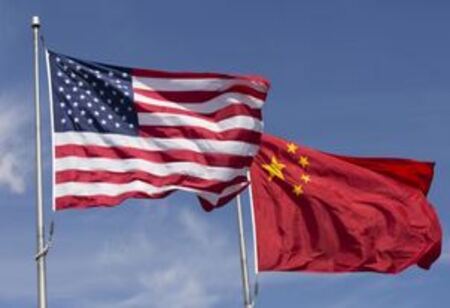
China-US Trade War Heats up as Beijing's Tariffs Take Effect


As trade tensions between the two largest economies in the world increase, Beijing imposed tariffs on some US agricultural products in response to President Donald Trump's most recent increase in Chinese imports.
Citing their inability to curb illegal immigration and the supply of lethal fentanyl, Trump has imposed a slew of tariffs on China, Canada, and Mexico, among other major US trading partners, since retaking office in January.
Trump increased the duty to 20 percent last week after enacting a general 10 percent tariff on all Chinese goods in early February.
Beijing responded swiftly, announcing new measures of its own and accusing Washington of "undermining" the multilateral trading system through its finance ministry.
These tariffs, which impose charges of 10 and 15 percent on a number of US farm products, go into force on Monday.
The increased fee will now apply to the US-sourced cotton, wheat, corn, and chicken. The rate will be somewhat lower for dairy, fruit, vegetables, aquatic goods, pork, cattle, soybeans, and sorghum.
However, if the items arrive in China by April 12, the duties won't be applied to those that departed before March 10.
Policymakers are currently confronted with a number of challenges, including low consumer spending, a protracted debt problem in the massive real estate sector, and significant youth unemployment.
China's exports, which hit all-time highs last year, may not give Beijing the same economic lifeline as its trade battle with Washington heats up, according to analysts.
Also Read: Paris AI Summit 2025: Fostering AI Advances in Every Sector Possible
As Chinese authorities gathered in Beijing for the nation's biggest yearly political assembly, known as the "Two Sessions," the most recent trade data was released.

